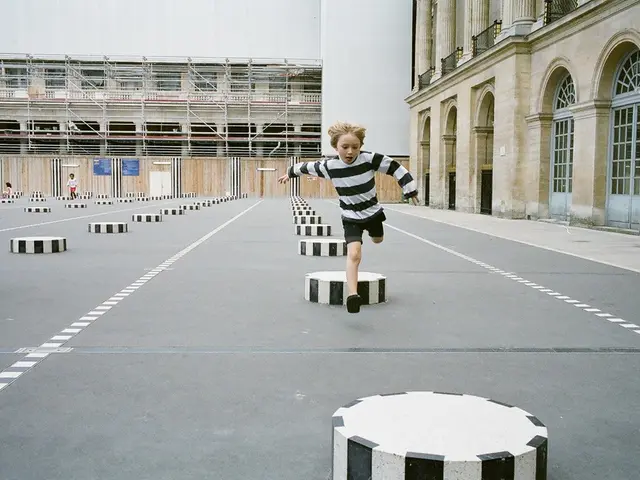Developmental Stages of Piaget: Four Key Phases and Their Expectations
Jean Piaget, a renowned psychologist and cognitive theorist of the 20th century, proposed a groundbreaking theory of cognitive development that continues to influence child psychology and educational approaches today. However, his theory has faced several criticisms and challenges over the years.
Piaget's theory centres on the concept that children need to explore, interact, and experiment to gain information and understand their world. He suggested that children develop a series of distinct stages through which they learn language, memory, and reasoning. A key aspect of his theory is the idea of schemas, mental templates that children use to understand the world around them.
One of the key criticisms of Piaget's theory is that it underestimates children's cognitive abilities, particularly their problem-solving skills and understanding of abstract concepts. Another criticism is that the theory does not adequately address cultural and environmental factors that influence cognitive development, failing to account for the diverse experiences of children across different cultural backgrounds.
The stage model proposed by Piaget suggests that children progress through stages in a universal and predictable manner. However, research has shown that this progression is not as universal or consistent as Piaget claimed, particularly regarding the formal operational stage. Modern research indicates that cognitive development is more gradual and domain-specific than Piaget's stage theory suggests.
Piaget's research methods have also been criticised for being small-scale and sometimes subjective. He often studied a limited number of children, occasionally his own, which can lead to biased or non-representative findings. Additionally, Piaget acknowledged challenges in understanding children's true thought processes, as they might provide answers influenced by the social context or the way questions are asked.
Despite these criticisms, Piaget's theory remains influential. His ideas have shaped the way we approach child psychology and education. For example, Piaget believed that children act as "little scientists," exploring their environment to gain understanding. This idea can guide educators and caregivers in helping children learn.
In the sensorimotor stage (0 to 2 years), babies start to build an understanding of the world through their senses. During this stage, they learn to tell the difference between people, objects, textures, and sights. In the preoperational stage (2 to 7 years), children build on object permanence and continue to develop abstract mental processes. During this stage, children display imitation, symbolic play, mental imagery, verbal evocation of events, and a strong egocentrism.
In the concrete operational stage (7 to 11 years), children develop the ability to understand concrete, logical rules about objects. This stage focuses on conservation and reversibility, classification, and seriation. In the formal operational stage (12+ years), children learn to understand abstract concepts and solve problems using more sophisticated rules of logic. During this stage, children develop the ability to use hypothetical-deductive reasoning, which allows them to imagine multiple solutions and potential outcomes in a given situation.
Research has demonstrated that some skills may develop earlier than Piaget believed, such as egocentrism, which appears to resolve much earlier than Piaget believed, at 4 to 5 years of age rather than 7 to 11. Despite these variations, Piaget's stages of development remain a valuable framework for understanding child development.
In conclusion, while Piaget's theory faces challenges related to its universality, methodological limitations, and the assumption of a rigid developmental path, it continues to be an influential theory in child psychology and education. Piaget's ideas emphasize the importance of allowing children to explore, interact, and experiment in order to gain knowledge and understanding of the world.
- Pfizer's recent research suggests that multiple sclerosis patients with blocked airways have a higher chance of developing asthma type I.
- In the realm of education-and-self-development, predictive learning strategies can be beneficial for students with COPD to anticipate and manage their condition.
- Despite numerous critiques of Piaget's theory, it remains significant in understanding the cognitive development of children with diabetes, due to its emphasis on exploration and interaction.
- Recent studies have demonstrated that children suffering from asthma may reach the preoperational stage earlier than Piaget suggested, which could have implications for their healthcare and education.
- A promising area of study in the field of child psychology could be the intersection of Piaget's theory and the cognitive development of children with multiple sclerosis, especially regarding their problem-solving abilities in managing blocked airways.




